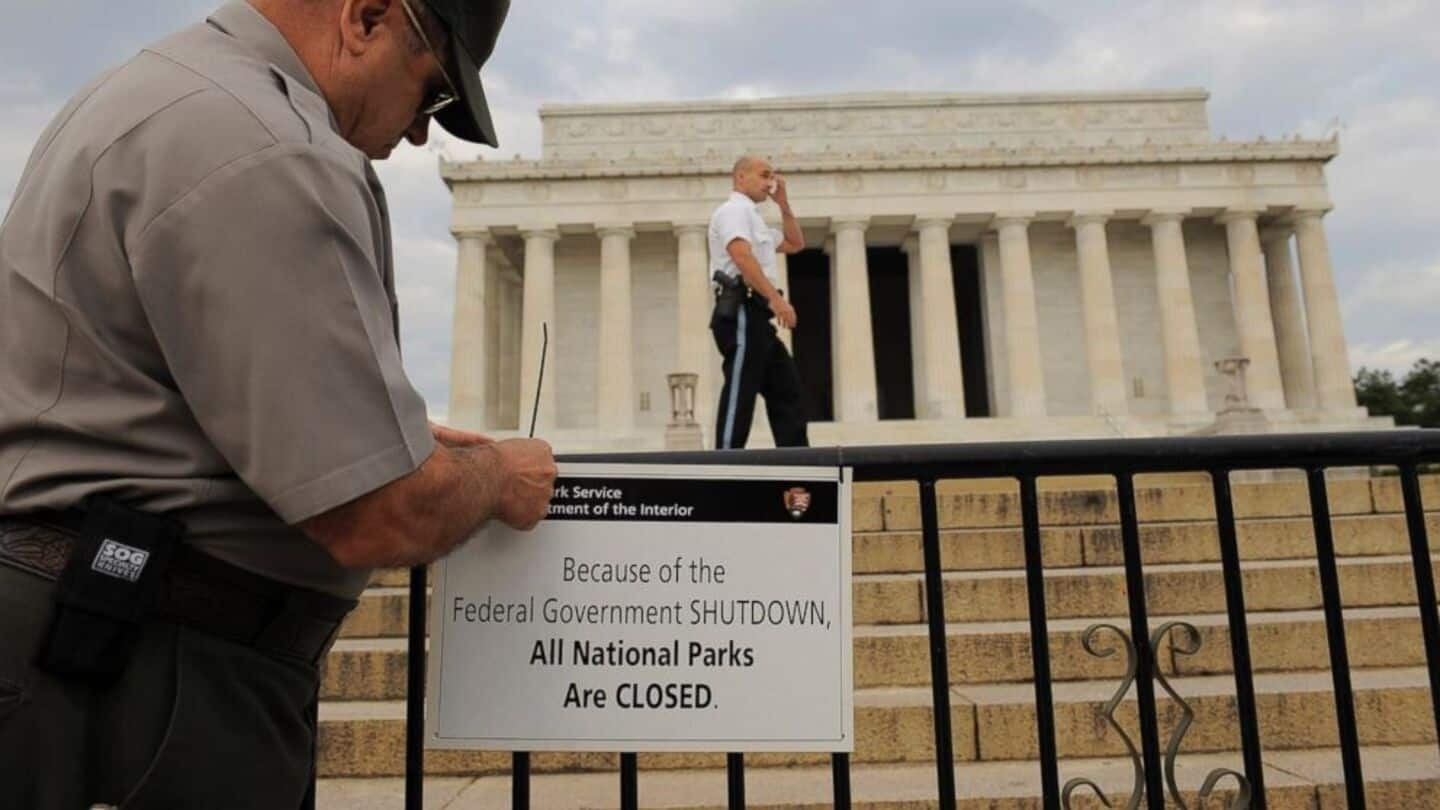
US government shuts down after last-ditch vote fails
What's the story
The United States government has officially shut down for the first time in six years after Senate Democrats rejected a Republican bill to fund the government. The 55-45 vote fell short of the 60 votes needed to end a filibuster and pass the legislation. Senate Democratic Leader Chuck Schumer accused Republicans of "bullying" by refusing to negotiate on extending expanded Affordable Care Act tax credits, which are set to expire at year's end.
Demands
Democrats' demands
Democrats are seeking an extension of health subsidies immediately as individuals start receiving notices of premium increases for the coming year. Millions of Americans who purchase health insurance through the Affordable Care Act may face increased costs as expanded subsidies first implemented during the COVID-19 outbreak expire. Democrats have also demanded that Republicans reverse the Medicaid cuts, as well as a promise from the White House that it will not seek to undo spending passed by Congress.
Blame game
Trump administration blames Democrats for impending shutdown
The Trump administration has blamed Democrats for the impending shutdown, with President Donald Trump threatening "cutting vast numbers of people out" and slashing programs. Senate Majority Leader John Thune said a "clean" bill should be noncontroversial and predicted Democratic support would increase once they realize this is a losing hand. Republicans, who hold a 53-47 Senate majority, needed at least eight Democratic votes after Republican Sen. Rand Paul of Kentucky opposed the bill.
Shutdown impact
Congressional Budget Office estimates 750,000 federal workers could be furloughed
If a shutdown occurs, the Congressional Budget Office has estimated that around 750,000 federal workers could be furloughed each day. The Department of Housing and Urban Development's website warns of the shutdown on its website, blaming "the Radical Left." The White House also instructed agencies last week to plan "a reduction in force" for numerous federal programs if the government shuts down. This means that employees who are not deemed essential may be dismissed rather than simply furloughed.
Policy demands
Last shutdown
The last shutdown occurred during Trump's first term, from December 2018 to January 2019, when he insisted that Congress fund his US-Mexico border wall. Trump retreated after 35 days of the longest shutdown in history, amid mounting airport delays and missed paychecks for federal employees.